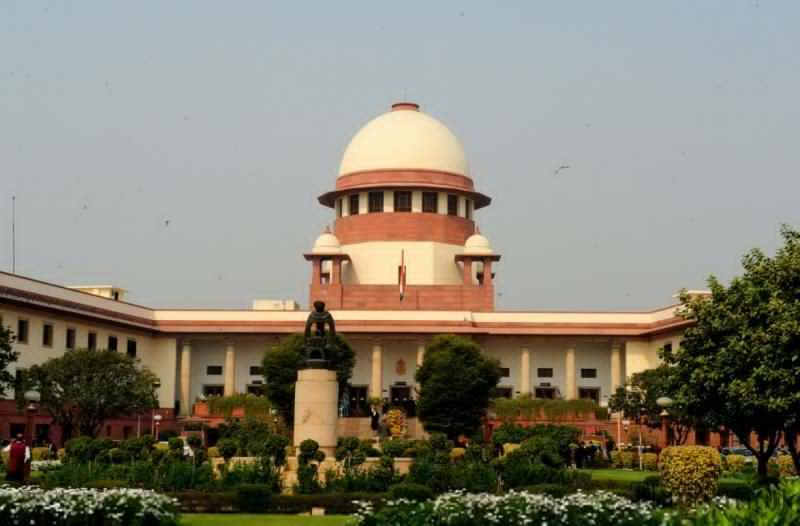Triple Talaq case proceedings in Indian Supreme Court
Shares

The Indian Supreme Court has condemned the practice of triple talaq today by calling it the ‘worst and undesirable form’ of dissolution of marriage among Muslims even though certain schools of thought termed it legal, the Indian media reported.
The Islamic divorce practice, legal under the Muslim Personal Law of Shariat, allows husbands to separate from their wives by uttering the word ‘talaq’ three times. Under the present law, ‘talaq’ can be given via text message as well.
The top court heard a clutch of petitions challenging the constitutional validity of the practice of instant triple talaq (talaq-e-bidat). A five-judge bench headed by Chief Justice JS Khehar examined the pleas.
The court heard seven petitions, including five filed by Muslim women challenging the practice of polygamy, nikah halala and triple talaq. On Thursday, the apex court wondered whether there was any alternative available to the Muslim community if triple talaq was done away with.
Senior advocate Ram Jethmalani also called the practice ‘abhorrent’ and does not give women equal right to divorce. “The right of triple talaq is available only to the husband and not to the wife and it breaches the Article 14 (Right to Equality) of the Constitution,” Jethmalani said.
“No law can allow a wife to become an ex-wife “at the fancy of the husband” and it is “the highest kind unconstitutional behaviour,” he added.
The observations of the top court came when former union minister Salman Khurshid, helping the court in the matter in his personal capacity, told the bench that judicial scrutiny is not required in the issue.
“Women have the right to say no to triple talaq by stipulating a condition in the marriage contract,” the Press Trust of India (PTI) quoted him as saying.
Additional Solicitor General Tushar Mehta told the top court that the Centre was against all forms of triple talaq and would argue on all aspects of gender justice including polygamy. Prime Minister Narendra Modi, in a recent meeting with Muslim leaders, asked the community to take steps to initiate reform in the area. He also exhorted the community not to view the practice through a political prism.
Triple talaq is opposed by a host of women’s organisations in the country who call it regressive and anti-women. The practice leads to abuse and discrimination against women, they contend.
